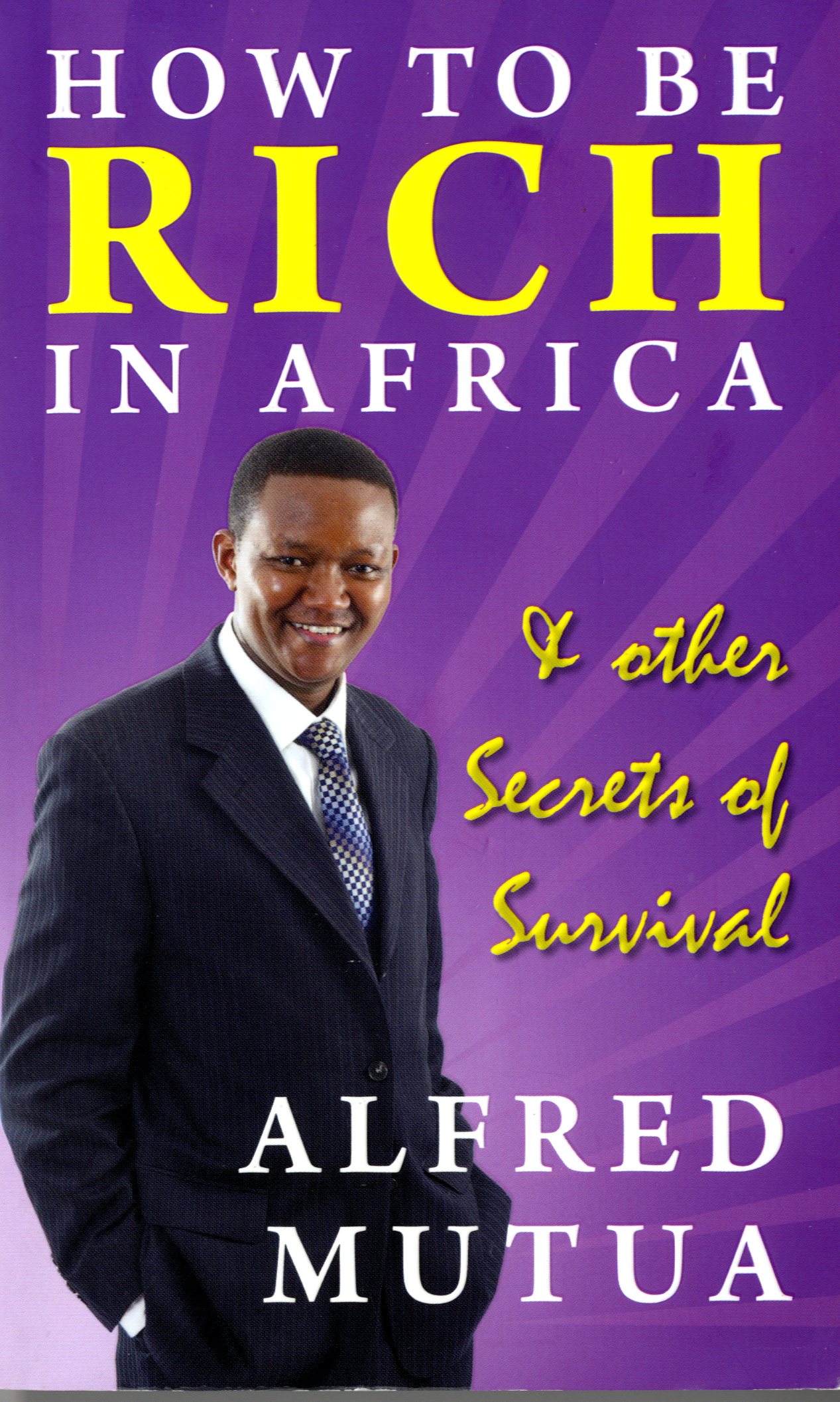Kenyan publishers: The weak link in Kenyan writing?
A Paper presented at an international seminar on Historical Legacy and Contemporary Writing in the Commonwealth, held in New Delhi from 8-10 October.
By JOSEPH NGUNJIRI
Just like the old woman in the Igbo proverb gets uneasy when dry bones are mentioned so does East Africa and Kenya in particular, whenever the phrase literary desert is invoked.
It is indeed interesting that more than 30 years after Taban lo Liyong issued his infamous edict, Kenya has not done much to disprove the controversial Sudanese writer.
Compared to Southern and Western African writers, Kenya, and the Easter African region still have a long way to go in terms of creative writing. You can easily tell this by the fact that most literary prizes in Africa keep ending up in the hands of either Southern or Western Africans.
This is ironical because Kenya has one of the most advanced publishing sectors in Africa aside from South Africa. However, a careful look at publishing houses in Kenya reveals that they dedicate their energies to the lucrative textbook market.
It has been argued that Kenyan publishers only publish a general readership books as an afterthought, and even then, they do not market them well.
When Henry ole Kulet’s book Blossoms of the Savannah won the Jomo Kenyatta Prize for Literature in 2009, such was his frustration when readers could not access copies of the book from bookshops.
And in my case, when my book Henry Wanyoike: Victory Despite Blindness came out in October last year, it took more than six months before it could get to Textbook Centre, the largest book distributor in Kenya.
And when recently, the subject of my book, a blind Olympic champion and multiple world record holder appeared in a radio talk show to promote the book, callers to the station said they could not get the book in their local bookshops.
Textbooks on the other hand require little or no marketing at all. Once your book has been approved by the Kenya Institute of Education (KIE) you only need to deliver them to booksellers and schools will make their orders. Of course there is the small bit of going round schools trying to convince teachers that your book is better than the others in the market.
In short marketing departments of Kenyan publishers are comprised of glorified salespeople who spend most of their time hustling school teachers.
About four months ago Kenyan publishers got a major scare when KIE, in a report, indicated that it intended to go back into the publishing of textbooks. Had this come to pass, publishers would have lost more than 70 per cent of their revenue, with the stroke of a pen.
It later emerged that the KIE report was heavily doctored, and that it was only after the mouth watering monies involved in school publishing. If there was a lesson to be learnt by Kenyan publishers then it was that they need not put all their eggs in one basket. But has the lesson been learnt? Only time will tell.
So reliant are publishers on the school market that even when they publish a work of fiction it is in the hope that KIE will adopt it as a set book, thereby guaranteeing them handsome sales. Rarely do they target the mass market.
It estimated that the textbook market potential in Kenya has been exploited up to 70 per cent, while that of non-textbooks stands at a mere 30 per cent, which means that there is a large untapped potential for non-textbooks in the country, and which publishers are unwilling to exploit.
When David Waweru established WordAlive Publishers in 2001, players in the industry laughed when he told them that he wanted to do Christian and motivational books. Today, nine years down the line the same publishers who laughed at him seek his services in terms if book packaging and marketing.
So successful has WordAlive been in those nine short years that when top biblical scholars from Africa wrote the Africa Bible Commentary, WordAlive was chosen to be its publisher in Africa.
WordAlive marked another milestone when Eyo one of its fictional titles was nominated for the prestigious Commonwealth Writers Prize for Africa, in 2010. The book was written, not by a Kenyan author but by a Nigerian writer!
The only WordAlive book that targets the school market is the Student Companion Bible.
And speaking of literary awards; this year’s Wahome Mutahi Literary Prize, was won by Ng’ang’a Mbugua, a journalist who decided to self-publish his book Terrorists of the Aberdare, after mainstream publishers turned it down.
There had been a precedent, another self-published effort, Grapevine Stories had won the Jomo Kenyatta Prize for Literature in 1997. It is only then that a publisher agreed to adopt it.
And when Penguin South Africa launched its inaugural Writers Prize for Africa, for unpublished manuscripts, one of the nominees in the fiction category was Kenyan Moraa Gitaa. Moraa’s manuscript had severally been rejected by publishers in the country. One of them accused her of having a “wild imagination”.
When Ngugi wa Thiong’o was in Kenya to launch his latest book Dreams in a Time of War: A Childhood Memoir, he urged writers not to shy away from self-publishing their books, if that is the only way to get their works into the market.
Ngugi defended publishers’ decision to concentrate on textbooks, arguing that as business entities they exist to make money.
He however said that it is the duty of African publishers to nurture and market young writers.
When I asked Ngugi why there hasn’t been young writers coming up to fill his shoes he said that he did not wish to pass negative judgment. “There are enough young writers today,” he said. “We might not see a lot of their works at the moment, but I believe they are working on something.”
He pointed out Kwani? as a group of young Kenyan writers with whom he has a lot of faith.
It is interesting that Kwani? should now be getting their legitimacy from Ngugi. When Binyavanga Wainaina founded Kwani? in 2003 after winning the Caine Prize for African Writing, in 2002, such was the buzz that accompanied it that many people felt a true Kenyan writing renaissance was unfolding before them.
So fired up were they that, among other things, they said that the writing by the Ngugi generation was outdated, and that they needed to step aside and let fresh new talent show the way.
When Vyonne Awuor, another of the Kwani? generation of writers won the Caine Prize in 2003, the general feeling was that these young writers at least knew what they were doing. Seven years after Kwani? was formed Kenyans are still waiting to read the first novel written by a member of Kwani?
By comparison Chimamanda Ngozi Adichie was only a nominee when Binyavanga won the Caine Prize in 2002. Today Chimamanda has written two highly acclaimed novels, Purple Hibiscus and Half of a Yellow Sun. The latter went ahead to win the Orange Prize. Chimamanda has been hailed as Chinua Achebe’s literary daughter.
Helon Habila is the other exciting young Nigerian writer. Thus Chinua Achebe and Wole Soyinka can rest easy in the knowledge that they have worthy inheritors of their mantles.
Back in Kenya, the Ngugi succession might take a little longer. And as he says we should be more patient.
Category: News
Henry Chakava, the man who almost lost his finger for sticking out his neck for Ngugi wa Thiong’o, purrs with pride at the prospect of his star writer winning the coveted Nobel Prize for Literature. “I feel very proud,” says Chakava the Chairman of East African Educational Publishers (EAEP), who are Ngugi’s Kenyan publishers. “It is not everyday that someone gets to win the Nobel, least of all an African.” If Ngugi wins, Chakava says that it will be a recognition of a long and deserved struggle for Ngugi: “It will be a crowning achievement for a person who has written consistently from the sixties to this moment,” says Chakava who persisted in publishing Ngugi even when it was patently clear that his controversial ideas had made him public enemy number one for the Kenyan government. It is this stubbornness that led to thugs attacking him outside his residence. The message was clear he had to stop publishing Ngugi or else… Chakava alludes to this in his book Publishing in Africa: One Man’s Perspective, in a chapter titled Publishing Ngugi: The Challenge, the Risk and the Reward; “There have been many threats, direct or indirect, that I or my company has suffered because of the association with Ngugi… It is not for me to tell you how Ngugi himself has suffered, but it has obviously been on a much larger scale; and it is that suffering that still keeps him in exile today.” The book was published in 1996. He adds: “In the years 1977 to 1982 – before and after Ngugi’s detention – we spent much time together,” Chakava writes. “The University of Nairobi administration had refused to allow him to resume his teaching duties, so I gave him a desk at my office, where he could do his writing.” He adds: “In spite of the problems I have been through, my association with Ngugi has been very rewarding, both intellectually and commercially. I must admit that my linkage with Ngugi in particular, has played an important part in establishing and enhancing my reputation and that of EAEP as the leading fiction publisher in the region.” Chakava explains that Ngugi is a writer who is not afraid to take risks. He recall one such moment when Ngugi decided to drop his Christian name James to start using Ngugi wa Thiong’o. “Our bosses then at Heinemann UK were alarmed at the decision, they asked if it was possible to use James Ngugi in brackets but Ngugi flatly refused,” says Chakava. He adds that if Ngugi wins the Nobel it would lift the morale of EAEP and help motivate young writers. “We will definitely reissue all his books,” he says. “He will clearly now be an international figure and it will be easier for us to promote him.”
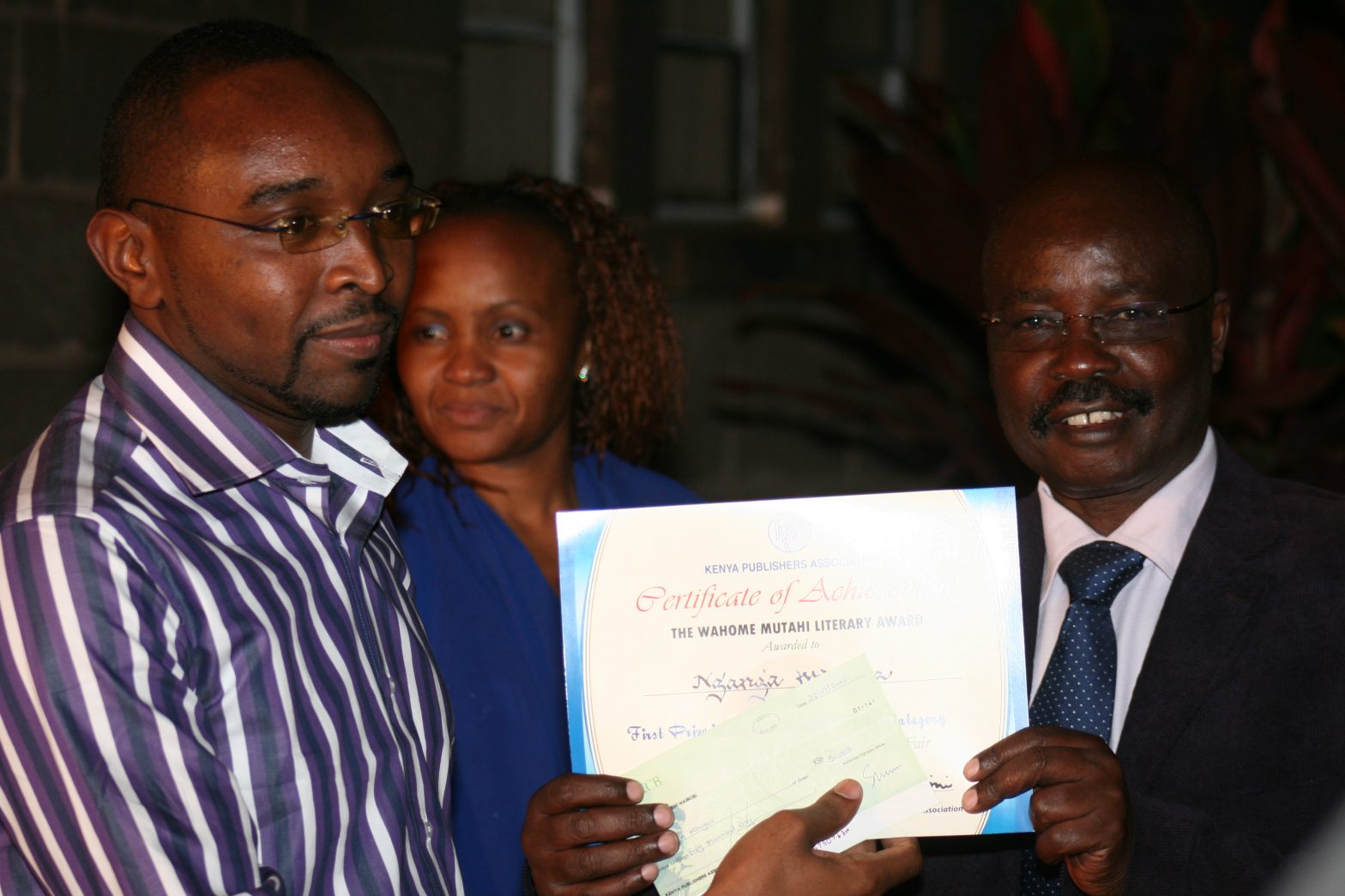
Ng’ang’a Mbugua’s novella, Terrorist of the Aberdare has won the third edition of the Wahome Mutahi Literary Award, while John Habwe’s book Cheche za Moto won the Kiswahili category of the same prize. The awarding ceremony was the highlight of the 13th edition of the Nairobi International Book Fair.
An elated Ng’ang’a Mbugua, who is also the chief sub-editor of Daily Nation, says that the win has vindicated his edition to self-publish the book. “I presented the manuscript of this book to several publishers and they turned it down,” an elated Ng’ang’a told Maisha Yetu. “Since I had faith in the book I formed Big Books, took a small loan and published the book.”
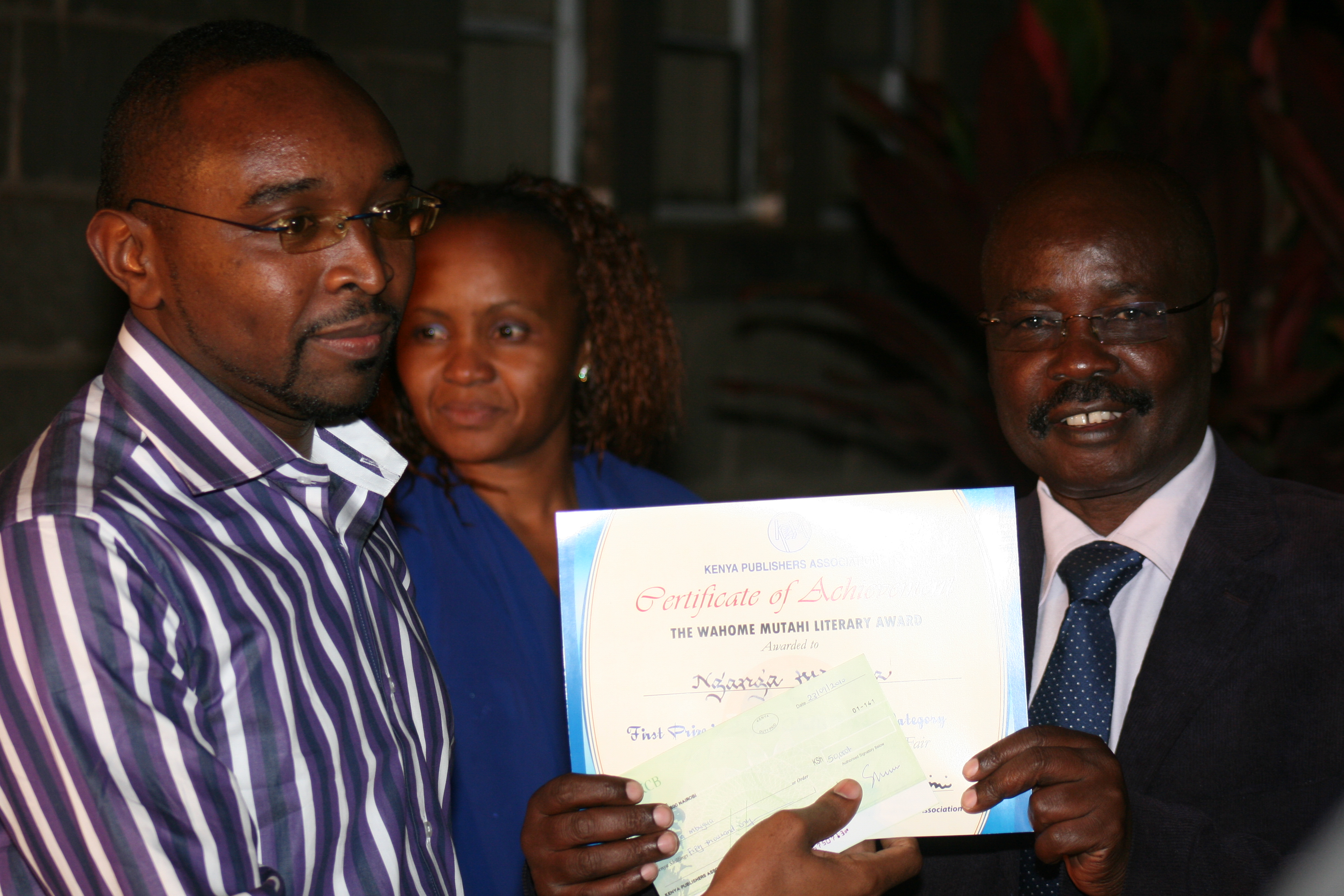
Ng’ang’a’s example shows that there is indeed life after publishers slam the door on a writer. I can imagine how the publishers who rejected the manuscript felt after Ng’ang’a stood to receive his prize. “Were we that blind?” they must have been asking themselves. And what does this say about the judgment of publishers who were given the chance to publish this book, and they rejected it? Should we start questioning their competence?
How many more potential winners are publishers sitting on? not to mention the ones they have rejected?
You might be wondering what Terrorist of the Aberdare is all about, whether it has anything to do with America’s old enemy, Osama bin Laden. Having read the book I can assure you that it has nothing to with Osama’s brand of terrorism. It talks about a different kind of terrorist: it is about elephants that cause havoc to farmers’ crops
These elephants leave the park and come to destroy farmers’ crops. Apart from that they also kill farmers who stand in their way. In Ng’ang’a’s book the victim of the elephant’s terrorism happens to be one Sonko Wakadosi, who was dispatched to his Maker by a rogue elephant. The author manages to address the serious issues of human wildlife conflict and environmental management by employing humour.
For the last few days Kenyans have been riveted by the exploits of one Mike Mbuvi ‘Sonko’, who trounced ODM’s Reuben Ndolo and PNU’s Dick Wathika to clinch the Makadara parliamentary seat in Nairobi. While talk about Sonko (rich man in Sheng) has revolved around his seemingly endless riches, the Sonko in Ng’ang’a’s book is dirt poor, and whose hope of striking it rich was through the sale of the cabbages so beloved of the elephants.
For his trouble Ng’ang’a takes home Ksh50,000 (625USD). But for Ng’ang’a money is the issue. it is about the recognition that comes with the win. “I plan to ride on the publicity generated by the win to really market my book,” says Ng’ang’a, whose company has already published a short story The Last Kiss, which is doing relatively well in the market.
Even before the award Ng’ang’a says that Terrorist of the Aberdare has done well in the short time it has been in the market, and that he has managed to recoup the money he invested in publishing the book.
The first edition of the Wahome Mutahi Prize was won by Onduko bw’ Atebe’s Verdict of Death, in 2006, while activist Okoiti Omtata’s play Voice of the People, won the prize in 2008.
Ng’ang’a has written other books including Mwai Kibaki: Economist for Kenya, (Sasa Sema) Catherine Ndereba: Marathon Queen (Sasa Sema), Susana the Brave (Focus), among others.
In case you have forgotten, the 13th Nairobi International Book Fair is still on at the Sarit Centre Expo Centrer will run up to Sunday September 26. So make a point of making an appearance there.
Mr Lawrence Njagi, the chairman of the Book Fair say that this year, the have received a record number of foreign exhibitors “We have about 20 foreign exhibitors at this year’s Fair. There are exhibitors from India, UK, USA, Nigeria, Senegal and Netherlands, among others. This is a testament to the growing international status of the Fair,” explains Mr Njagi.
Among the key attractions of the Fair includes the Budding authors seminar taking place tomorrow between 9 am to 4 pm. The seminar brings together up and coming writers who receive writing tips from professionals in the industry.
People looking to enrich their libraries or bookshops should visit the Fair on Saturday September 25, whereby publishers will be auctioning books. “People should come expecting to buy books at discounted rates of up to 50 per cent,” says Mr James Odhiambo the executive secretary of Kenya Publishers Association, the organisers of the Book Fair.
There will also be a special performance dedicated to the late Dr Ezekiel Alembi, who apart from being a published author, used to coordinate children’s activities during the Book Fair. The Alembi Hour is on Saturday between 11 am and midday.
The climax of the Book Fair is the awarding of the third edition of the Wahome Mutahi Literary Prize, on Saturday evening at the Nairobi Club.

Kenya’s Education Permanent Secretary Prof James ole Kiyiapi will, on Thursday, September 23 preside over the official opening of the 13th edition of the Nairobi International Book Fair, at the Sarit Centre in Nairobi.
The very fact that Prof Kiyiapi has agreed to officiate at the event is not lost to players in the publishing industry. This can be translated as a sign of improving relations between Kenya Publishers Association (KPA), the organisers of the book fair and the Ministry of Education, based at Jogoo House in Nairobi.
Relations between publishers and Jogoo House had deteriorated to an all-time low, with publishers complaining that former a Prof Karega Mutahi, the immediate former Education PS, was arrogant and high handed.
Publishers however had their last laugh after Prof Mutahi was caught up in a maelstrom of corruption allegations, over textbook funds, and was suspended by President Kibaki, following sustained pressure from the public, donors and civil society.
To say that publishers breathed a sigh of relief would be an understatement as textbooks are the bread and butter of a majority of Kenyan publishers. If money meant for school books was being misappropriated, then it meant that publishers were unable to make ends meets.
At some point publishers were heard complaining that Jogoo House was getting too chummy with booksellers, falling over themselves to fulfill the whims of booksellers while publishers looked on green-eyed.
A case in point was when ministry officials allowed booksellers to publish names of booksellers cleared to sell books under the Free Primary Education (FPE) in the Orange book. All this was done behind the backs of publishers.
Thus when Prof Kiyiapi was moved from Medical Services to Education ministry, publishers made the earliest efforts of being seen to be in his good books. At a recent meeting between the publishers and the PS, publishers asked him to consider removing the six-book ceiling on books approved to be used in public schools.
Under the six-book ceiling public schools can only chose from a list of six books per subject. This means that even if ten books have met the required standard by KIE, only six books would pass. The rest would either go to waste or publishers would be forced to market them to private schools. Publishers are not known to be very good marketers.
This means that publishers whose books were not approved incurred heavy losses.
It is understood that at the meeting, the PS promised to look at the issue and was in agreement with publishers that the six-book ceiling needs to be done away with.
It now remains to be seen whether the ministry will effect the removal of the offending six-book ceiling.
Back to the school books scandal. The effect of schools failing to get funds for buying books meant that revenues for publishers were not getting money for books they had already published and thus their revenues severely affected.
The result is that publishers found themselves in dire financial circumstances and most were forced to retrench their staff.
The 13th Nairobi International Book Fair is therefore being held against a backdrop of declining business on the part of publishers. This is evidenced by the fact that there will be very few new books being launched this time round.
And that is why Prof Kiyiapi’s presence at the Book Fair is viewed as a major victory for publishers.
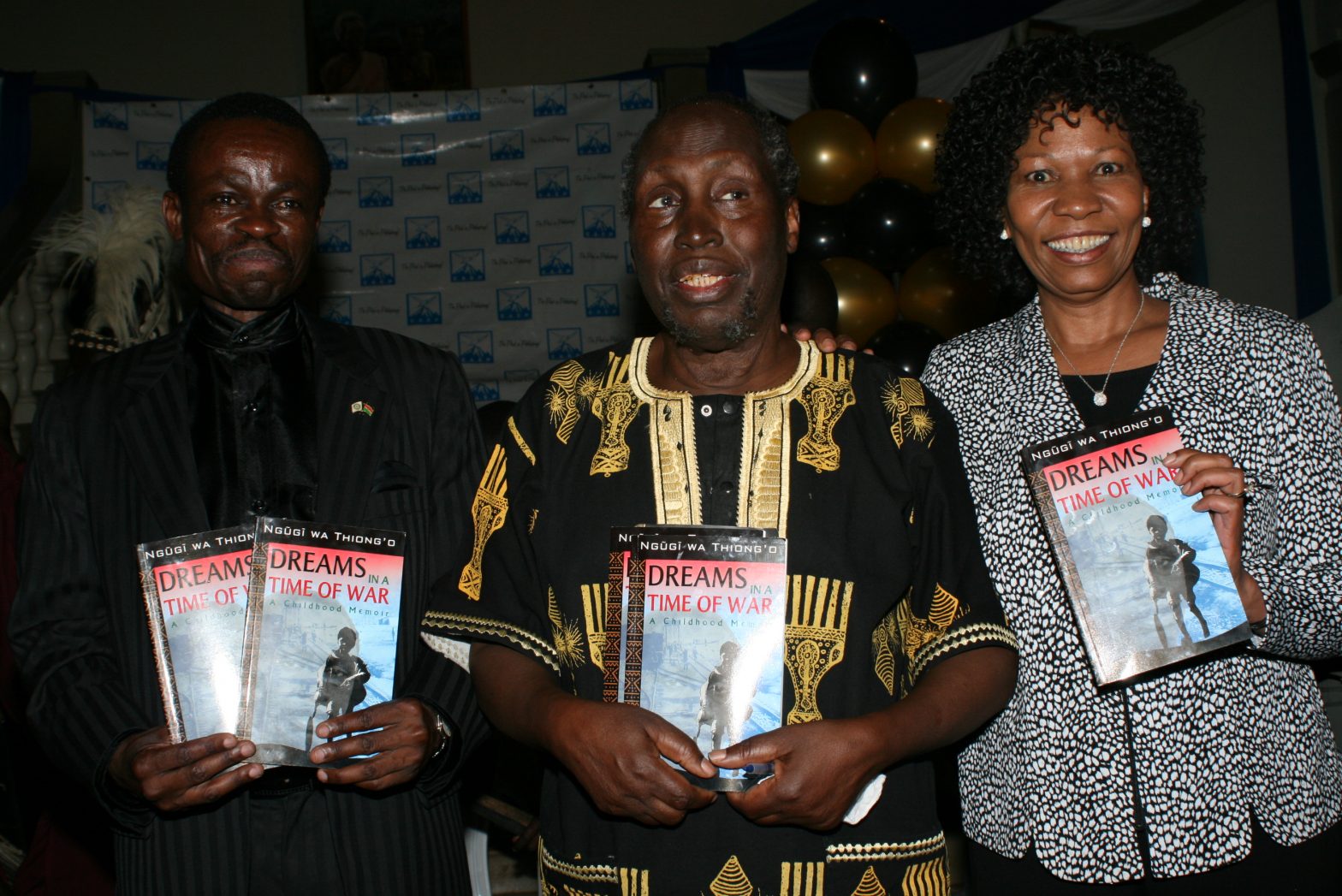
When Ngugi wa Thiong’o was in the country for the launch of his latest book Dreams in a Time of War: A Childhood Memoir, yours truly had a chance to talk with him, and the interview touched on a number of issues. Among other issues he urged young writers not to shy away from self-publishing their works. For a long time the self-publishing route was taken as a last resort, after publishers shut their doors on a writer.
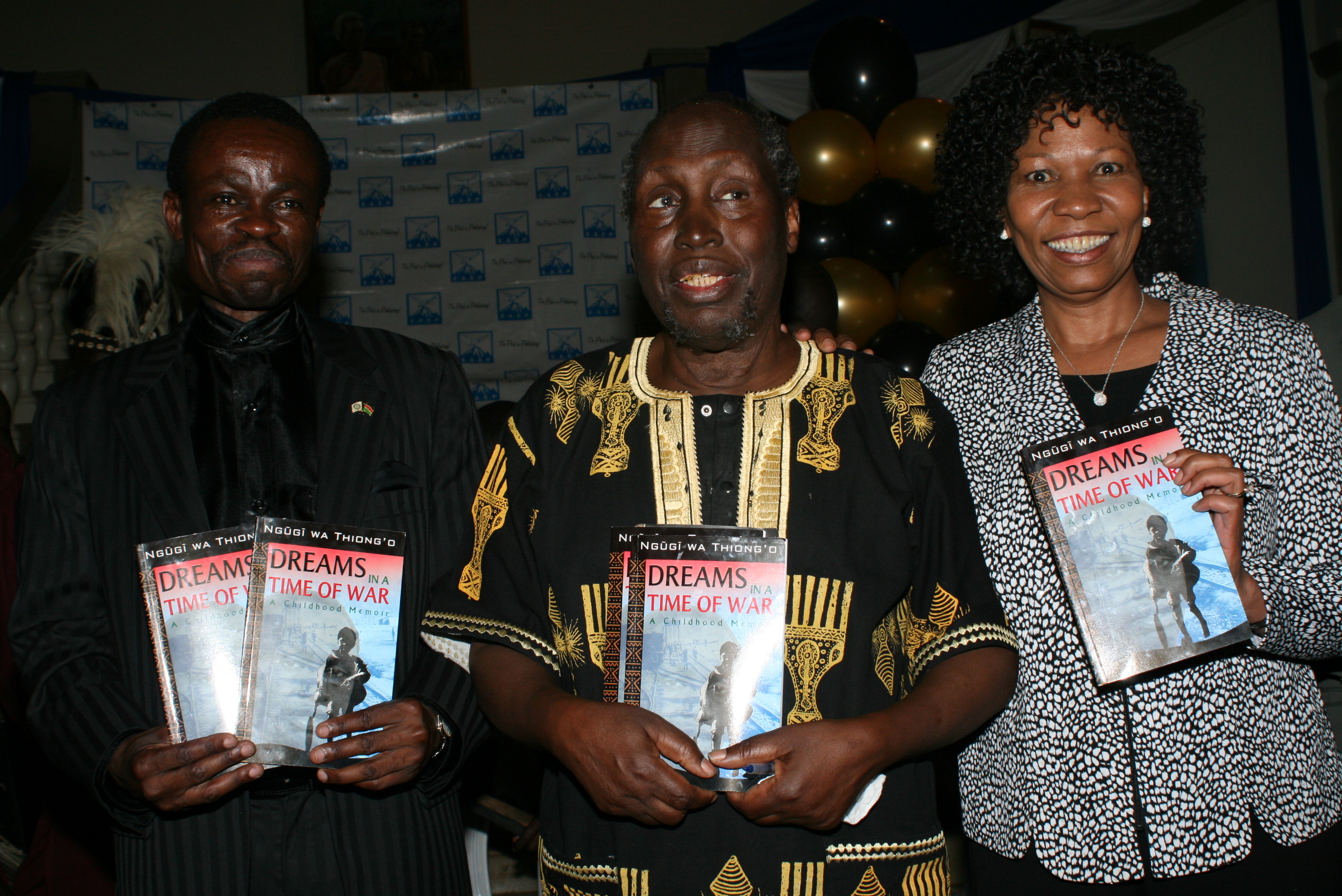
While self publishing is fraught with risks, I think it is time writers gave it a shot. Why am I saying this? Well, as far as Kenyan publishers are concerned, creative works are nothing more than engaging Corporate Social Responsibility. Let me explain: after they have made tonnes of money from publishing textbooks, their conscience pricks them and they decide to do one or two consumer books, as a way of giving back to the society.
The tragedy is that they do not give these books too much thought and therefore do not really market these books. It is therefore not unusual to find good books lying in their warehouses, and they are not being taken to bookshops. Thus don’t be surprised if you walked into a bookstore to request for a Kenyan book only to be told that it is not available. Believe you me, I have been published and I know how it feels for a person to tell you they cannot find your book in a bookstore, including the main ones in Nairobi.
Even when the books are in bookstores, publishers do not bother to make noise about them. Tell me publishers, how do you expect readers – do not give me crap about Kenyans not reading – to know about a book you have published if you do not make them aware of its existence in the market? Is it too much to buy space in the media to shout about your new book?
You see the problem is such that you have become so reliant on the school market to move your textbooks, without breaking a sweat, that you have become complacent.
I recently had a talk with a motivational author who told me that he has moved more copies of a book he self published, than one that was done by a publisher, and in a relatively shorter time. Go figure.
During the interview I asked Ngugi for his opinion on why we are not seeing new novels – not short stories – from young Kenyan writers. Being the good person that he is, Ngugi told me that he did not want to pass “negative judgment” on young Kenyan writers. He urged patience saying that writing is a long process, and that we would eventually be shocked by what these young writers, particularly Kwani? might unleash on us in the future.
I don’t know what Ngugi told the Kwani? crew about our interview, when he later met them, because later that evening at the launch of his book, at the National Museums I was cornered by Billy Kahora, the Kwani? editor, who demanded to know why I had been asking Ngugi “leading questions.” It so happened that Binyanvanga Wainaina, Kwani’s founder, with dyed hair on his head, was nearby and he joined in on the ‘grilling’ . “I just laughed,” Binya sniggered. He was referring to his reaction to whatever Ngugi had told them.
With all due respect, I would love for someone to point out a novel – again not short story – that has been written by the Kwani? franternity, or better still, take a look at this year’s Wahome Mutahi Literary Prize nominees, here and show me a book written by a Kwani? person, and I will show you who is splitting hairs.
You can read the rest of the Ngugi story here.
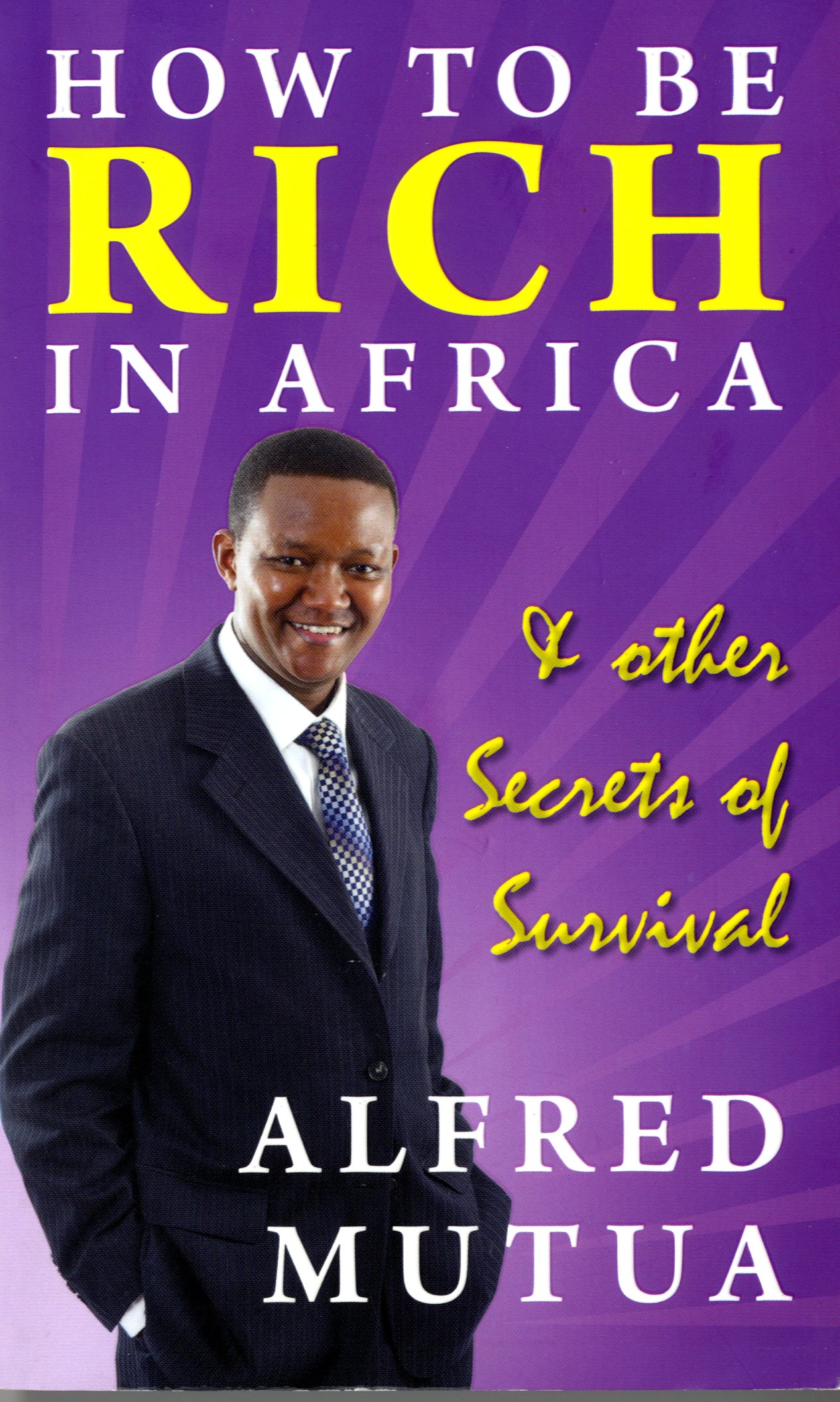
Ever since I heard that Kenya’s government spokesman Alfred Mutua has written a book on, wait for it, How to be rich in Africa, I knew something was amiss somewhere. With all due respect Mutua was the last person I expected to write on such a topic. He must have hustled his way to a top position in government, but he is not the ideal example of a wealthy person, leave alone claiming to advice people on how to make money.
I firmly believe what he has achieved is largely due to his influential position in government and not as a result of any any business acumen. But that is not to say that he is not a brilliant man. I will however refrain from going any deeper into the book before reading it. My interest in his book was renewed after I read its review written by Evan Mwangi in the Business Daily today. This is one of the most interesting reviews I have read in a long time. The reviewer pulled no punches.
“I bought my copy of his (Alfred Mutua’s) How to be Rich in Africa and other Secrets of Survival in Africa in a fancy bookshop in Nairobi and got disappointed immediately for spending my Sh600 on such a book,” writes Mwangi. “My instinct was to throw the book in a trash can together with my used paper towels or return it to the bookstore without claiming my money back.”
That is harsh you might say, but then wait till you hear this; “My ultimate take away lesson is: never let any shilling from your grasp. If by mistake you happen to buy a useless book, don’t be tempted to throw it away in anger. Review it for the best-paying newspaper before selling it to recoup some of your losses.” – emphasis mine.
You can read the rest of Mwangi’s review here.
Unlike Mwangi, I am not willing to risk my sh600 – I have better use for my money – I don’t have much! A colleague has promised to lend me his copy. I will go through it and post my review here. so watch this space…
After months of deliberation, the judging panel of the Wahome Mutahi Literary Awards have announced the list of nominees for the 2010 edition. Maishayetu hereby gives you the list of nominees in both the English and Kiswahili categories.
English
1. Hawecha: A Woman for all Time by Rhodia Mann – Sasa Sema/Longhorn
2. A Measure of Courage by Muroki Ndung’u – Focus Publishers
3. Terrorist of the Aberdare by Ng’ang’a Mbugua – Big Books Publishers
4. The Ole Sepei Mystery by Emmanuel Kariuki – E.A.E.P
5. Blossoms of the Savannah by H.R.Ole Kulet – Sasa Sema/ Longhorn
Kiswahili
1.Mafamba by Tom Olali – Jomo Kenyatta Foundation
2. Fumbo la Maisha by John Habwe – Jomo Kenyatta Foundation
3. Cheche za Moto by John Habwe – Jomo Kenyatta Foundation
4. Vitanzi vya Tamaa by Lamin H. Omar – Jomo Kenyatta Foundation
5. Utoro by Alex Ngure – Jomo Kenyatta Foundation
The winner will be announced at the closing of the 13th Nairobi International Book Fair
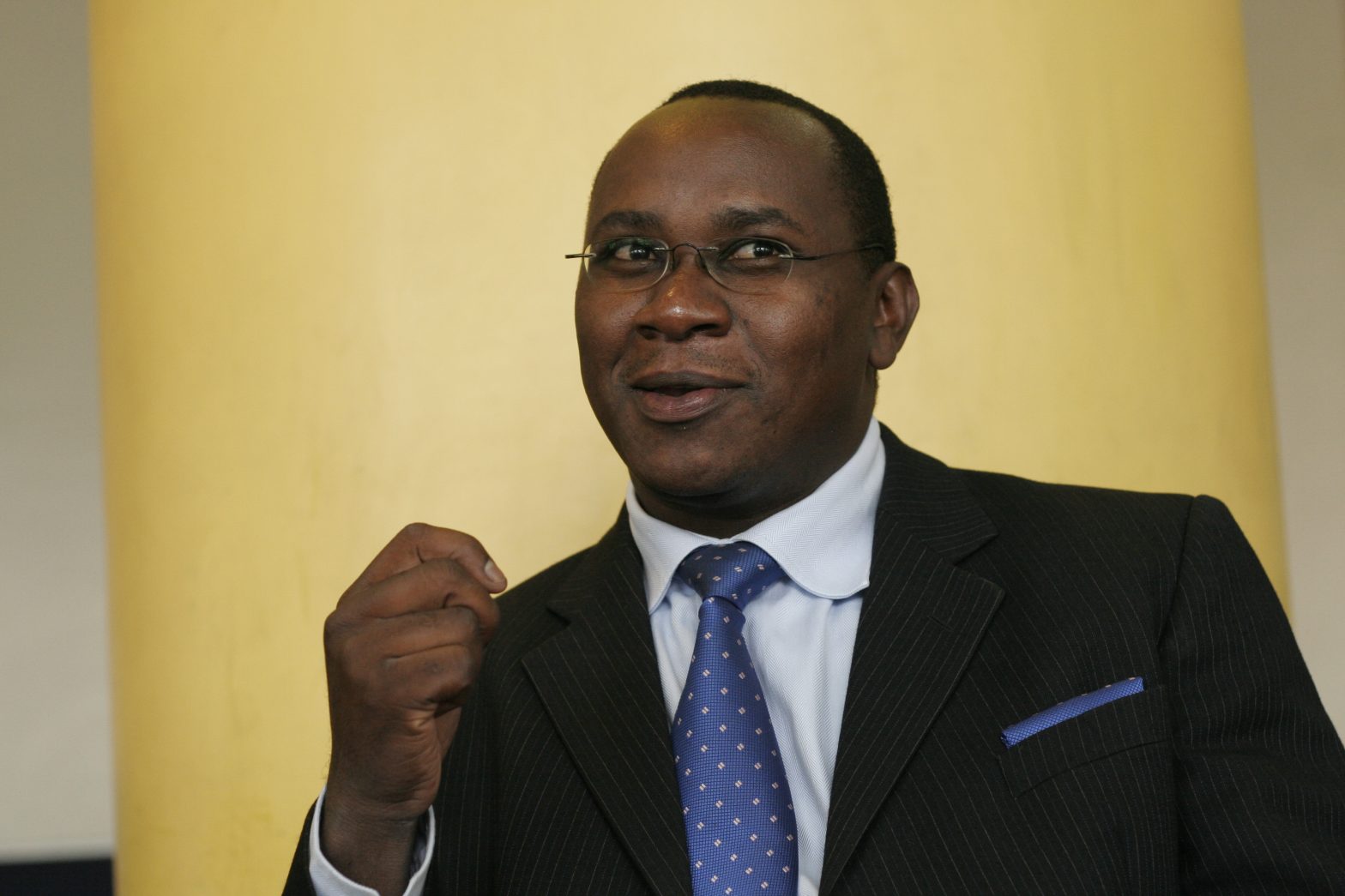
The Annual Nairobi International Book Fair, now in its 13th edition is set to take place from September 22 to 26, at the Sarit Centre in Nairobi. Maishayetu spoke to Mr Lawrence Njagi, the chairman of the Book Fair on what is in store for book lovers. Mr Njagi is also the managing director of Mountain Top Publishers.
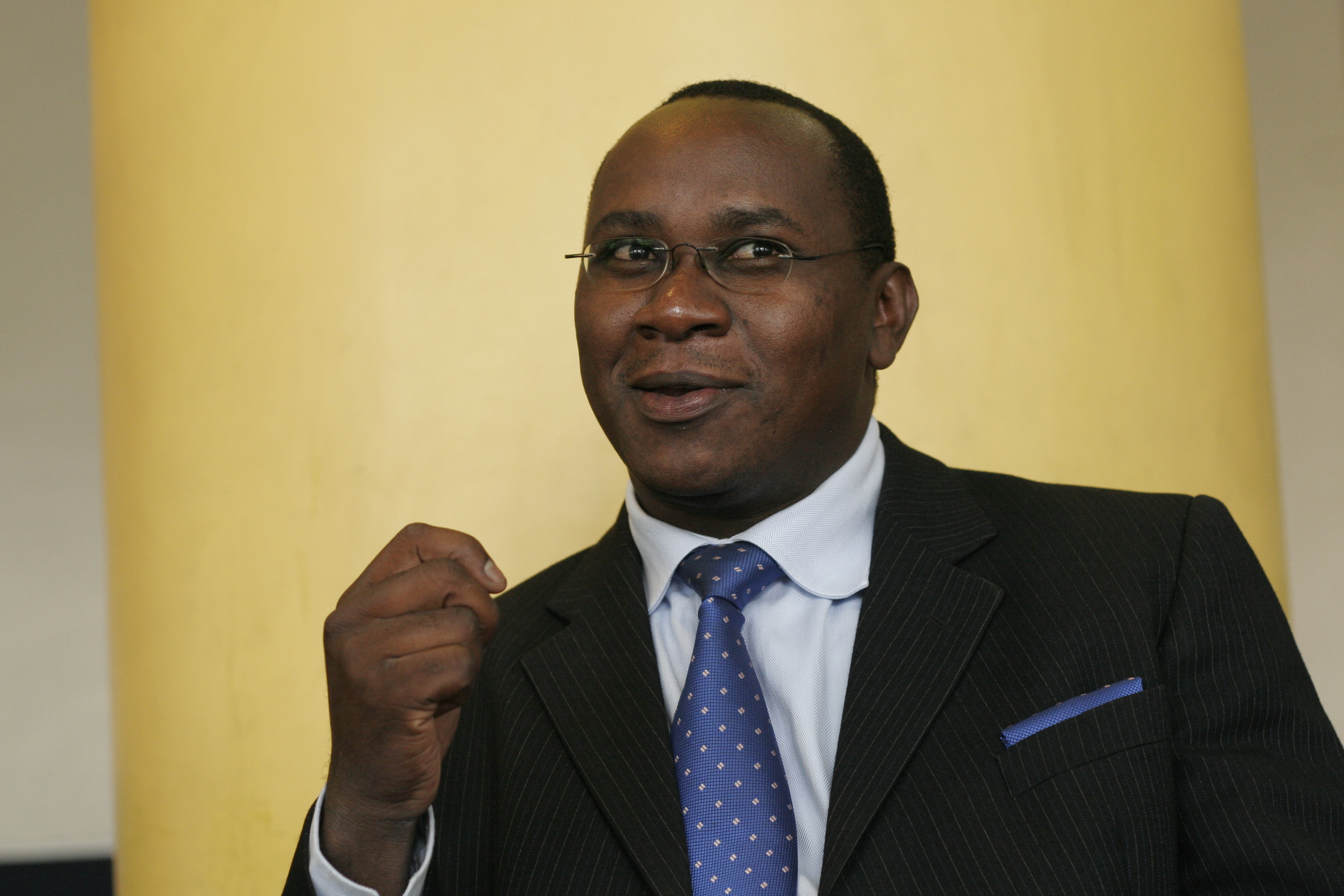
Maishayetu: What does the 13th Nairobi International Book Fair (NIBF) have in store for potential visitors this year?
Lawrence Njagi: As the premier book show in the East African region visitors should come to the book fair expecting to see the best that the region has to offer in terms of books. This means that visitors should be able to interact with these books under one roof, and in a relaxed atmosphere, without being hassled by salespeople.
This is also about the only opportunity that book lovers are able to meet and interact with their favourite authors. What is more, these books are offered at highly discounted rates. This means that bookshops and libraries should take advantage of this offer to stock up. We will also be conducting seminars and workshops on relevant topics like intellectual property rights and digital publishing. Aspiring writers will also benefit from a seminar on how to successfully get published.
All in all, all visitors to the NIBF, from children, the youth and grownups should come to the Fair in the knowledge that their needs will be adequately catered for.
Q: You have been chairman of the NIBF for the last three years now, what have been your achievements so far?
A: When I took over as chairman of NIBF, the average number of visitors to the Fair was 6,000, by last year that number had risen to 17,000. We expect more visitors this year. Two years in a row, all the stands have been fully booked, and the demand for stands is growing. This means increased revenue for NIBF.
This year, we are having the largest number of international exhibitors at the Fair; five from India, two from Nigeria, one each from Senegal, China and Ethiopia. Of course we have the usual exhibitors from Uganda and Tanzania. This is not forgetting other international visitors who are not necessarily exhibitors. This is thanks to the aggressive marketing campaign, we have put in place.
In addition we now publish a free-to-distribute magazine which gives readers relevant information on the book industry.
Q: Kenyan publishers have been accused of being too textbook-oriented and therefore neglecting creative writing.
A: Before you heap all the blame on publishers, it is good to take a look at the bigger picture. A closer look at the system of education in Kenya reveals that it is too exam oriented; therefore putting to much pressure the student to pass exams at all costs. That rigid culture leaves little room for leisure reading, hence the reason many Kenyans don’t see the need to read after they are through with official schooling.
Q: Aren’t publishers contributing to the problem then?
A: First of all you have to understand that publishers are first and foremost business people looking to make maximum returns, and there is no denying the fact that textbooks provide a good source of profits to publishers. But we also have a moral duty to serve the emotional, intellectual and spiritual needs of readers, and that is where non-textbooks like motivational and fiction fall. All we are saying is that the government needs to put in place policies that encourage leisure reading, a good starting point would be an overhaul of the current system of education.
Q: Still, that does not take away the fact that publishers do not market non-textbook materials well…
A: Let me say that when a book is not well marketed, both the publisher and author suffers as both have invested heavily in the publication. This is therefore a call to publishers to cast their net wider as far as marketing their books are concerned. Let publishers make use of all forms of media, print, electronic, the Internet even, to make noise about the availability of their books. In addition to bookshops, we at Mountain Top sell our books in all major supermarkets around the country. Authors too should come up with ideas on how well to market their books.
Q: You mentioned a seminar on digital publishing, are Kenyan publishers ready to embrace this new technology?
A: Publishers need to be dynamic and be able to embrace new technology as it comes along. However, the reality is such that majority of Kenyans still do not have access to electricity, and thus computers are out of reach for many. Stil, there is a generation of Kenyans that is quite well versed in digital technology and these ones have to be taken care of as well.
No Kenyan publisher has ever taken Moraa Gitaa seriously. And while they have generally given her manuscripts a wide berth, Penguin Books, one of the world’s most respected publishers, thinks otherwise.
Out of the 250 manuscripts received all over Africa for the inaugural Penguin Prize for Africa Writing, Moraa’s and five others became the eventual nominees in the fiction category. The awarding ceremony will take place in South Africa next month. And if she wins the award, she stands to take home a cool half a million shillings (R50,000).
The other nominees are Kenya’s Mukoma wa Ngugi, Ellen Aaku from Zambia, Chika Ezeanya from Nigeria, Shubnum Khan from South Africa and another South African Isabella Morris. “Of all the nominees, I am the only one based in the continent,” she says with a touch of pride.
The award seeks to highlight the diverse writing talent on the African continent and make new African fiction and non-fiction available to a wider readership. Apart from the prize money, the winners will also benefit from a publishing contract with Penguin Books South Africa, with worldwide distribution via Penguin Group companies.
Among other things, the judges will be looking for freshness and originality that represent the finest examples of contemporary fiction out of Africa. In the non-fiction category the judges will be looking for serious narratives that examine and explore African issues and experiences for both local and international audiences in an engaging, thought provoking and enlightening way.
Moraa, who is in her mid thirties, believes that her manuscript meets the bill and is confident of winning the overall prize. “I deserve it,” she says defiantly.
When she had earlier presented the same manuscript to a Kenyan publisher, it came back with a rejection note accusing her of having ‘an extremely wild imagination.’
Such a put down would have left an average writer utterly devastated and unable to continue writing, but evidently, Moraa is not your average writer. “I licked my wounds and decided that if no Kenyan publisher is interested in my work, I would look for a publisher outside the country,” she says with a determined look in her face. “I have gone through more trying times in the course of my writing and there was no way I was going to allow such a comment to break my spirit.”
Without elaborating Moraa, who calls herself a pro-women and children’s writer, says her writing gives ‘profound insights’ into the human condition, “and for that you are labeled a controversial writer.”
She explains that she started writing the manuscript way back in 1997. At some point, in 2003, while still writing the manuscript, she developed pneumonia, yet she was staying in Mombasa, the last place you expect a person to catch a cold-related ailment.
“I almost died while writing this manuscript,” she says with a rueful smile. Then, she was working as an administrator in a busy nightclub at the coastal resort city. And in order to get some quiet time to work on her manuscript, she would cover herself in what she thought was warm clothing and sneak into the cold room, where she would put pen on paper, literary.
The effect of those stolen moments in the cold room was the pneumonia she developed later. “The people who knew what I was doing at that time believed I was genuinely mad,” she says. “But if following my passion means that I am labeled mad then so be it.”
Not even the pneumonia could douse the burning ambition she had of becoming a writer. In 2007, she moved to Nairobi, where has been working as a part time editorial consultant. “I shifted from Mombasa as I thought that Nairobi held more promise in terms of getting published,” she explains.
It was not in vain as the following year another of her manuscripts won the National Book Development Council of Kenya (NBDCK) literary award, and with it came a modest cash award of Sh30,000.
When she could not get a publisher locally she took yet another of her manuscripts to Nsemia Publishers, based in Canada. Unfortunately for her the book Crucible for Silver and Furnace for Gold could not be accepted for the Jomo Kenyatta Prize for Literature, for the mere reason that it was published outside Kenya, never mind that Nsemia is owned by a Kenyan.
With the nomination Moraa now feels that her hard work and perseverance is finally being recognized. She adds that it should also serve as enough reason for Kenyans and East Africans for that matter to start dusting their long neglected manuscripts. “If you have a passion for writing you should not give up just because there are not enough opportunities in your home country,” she says.
That is the only way East Africans can ever hope to match their Western and Southern African counterparts, she adds.
If she wins the award, Moraa says that part of the prize money would go towards developing a centre for children with learning challenges. This has been motivated by the fact that her daughter, now fifteen, was born with dyslexia.


